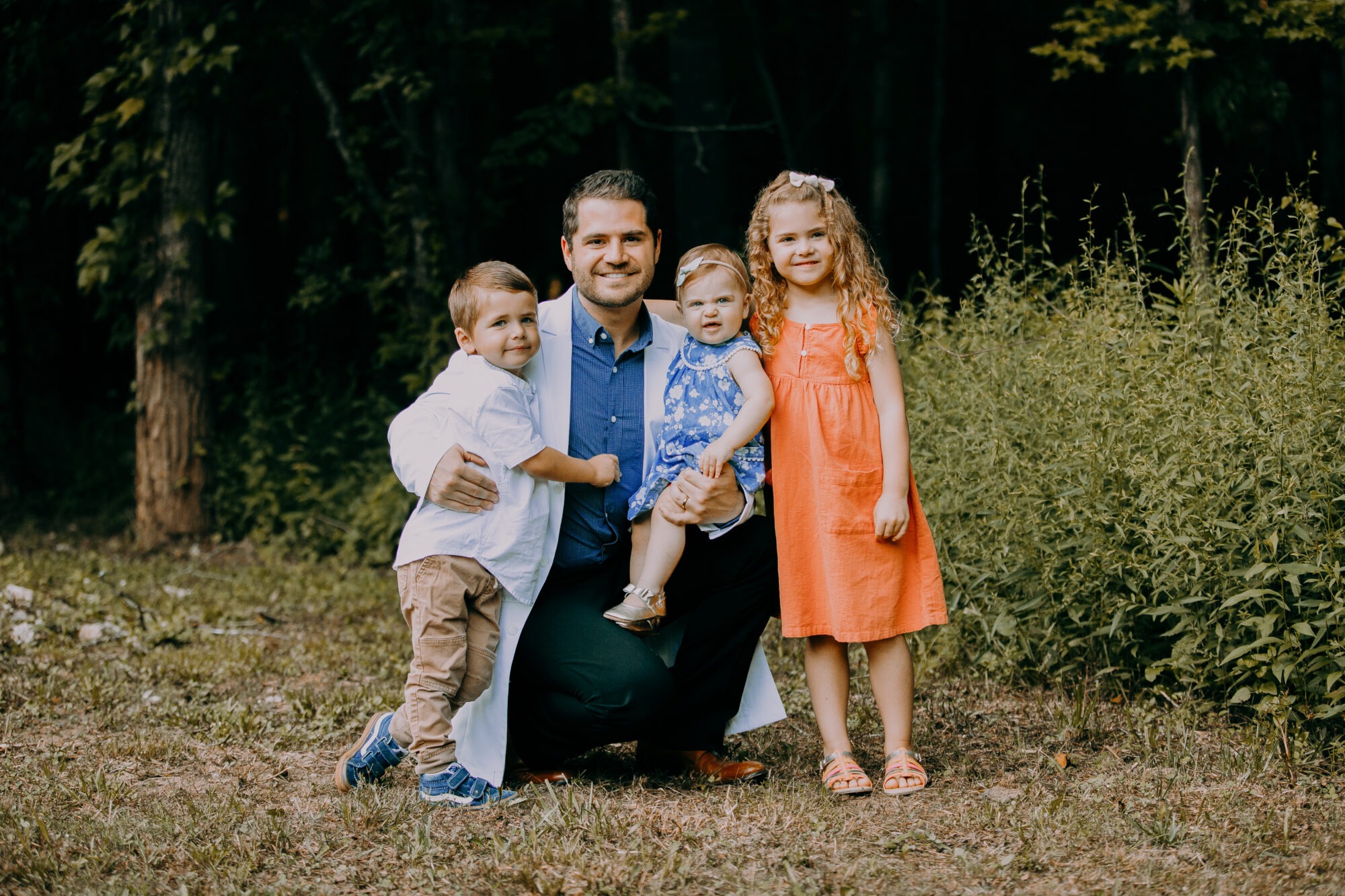Kids’ Orthodontics
At Knapp Orthodontics, we strive to treat you like family. That means that Dr. Knapp's recommendation for treatment in children is what he would feel comfortable recommending for his three small children.
Free Early Assessment
The American Association of Orthodontics and Dr. Knapp recommend that kids see an orthodontist around seven years old. You do not need a referral to visit the orthodontist. Please call us anytime to set up a free consultation.
When your child sees Dr. Knapp at the age of seven, he will perform a short exam, take some X-rays and pictures of the face and teeth, and discuss your child’s growth and development.
The hope for this initial exam is that we won’t find any issues and that we can simply observe your child every six months or yearly until all of their adult teeth have come into the mouth and they are ready for full braces. However, should we find a concern, we will provide you with all the options so you can make the best choice for your child.

Address Issues Early
During this free early assessment, Dr. Knapp will be monitoring the growth and the adult teeth to ensure they come into the mouth appropriately. Much of the time, Dr. Knapp will recommend waiting for all of the adult teeth to be in the mouth prior to putting on braces. On select occasions, Dr. Knapp will recommend an early phase of treatment.
Reasons for early treatment include narrow palates, cross-bites, underbites, significant crowding, tongue habits, thumb habits, and space maintainers for early loss of baby teeth. An early phase of treatment will often be followed by a second phase of treatment to straighten all of the adult teeth once they have all come in.
Addressing some key issues while young will oftentimes prevent major headaches and potential complications later on in development. Additionally, some treatments are only effective when the child is young, and the bones are not fully fused together.
During these free annual assessments, Dr. Knapp will be happy to discuss where your child is at, as well as the pros and cons of early treatment with no strings attached. The choice is completely up to you.
Benefits of Early Intervention
- Alleviate crowding of teeth
- Correct crossbites
- Address
- Narrow or constricted jaws
- Create space for adult teeth that do not have room, hopefully preventing their future removal
- Hold space for teeth that are going to come into the mouth
- Attempt to correct skeletal concerns while the bones are malleable
- Improve self-esteem of crooked or rotated teeth
- Retract teeth that are protruding too far forward and hopefully prevent the risk of trauma

Early Orthodontic Treatment Options
Observations
Many kids will be placed on an observation program where we see them yearly to monitor their growth. They simply have no immediate need for braces at this time.
We’ll continue to monitor them until all of their adult teeth are in the mouth, and then we will discuss whether treatment would be beneficial at that point. This is completely free of charge.
Early Braces
Sometimes, excess space or gaps appear between your child’s front teeth. Oftentimes, this will not cause any issues.
However, if closing the extra space is a priority for you, we’ll be more than happy to place some braces and close that space. Other times, we’ll place braces to create a little extra space so an adult tooth has space to come into the mouth.
Space Maintainers
If some baby teeth are taken out too early, it can sometimes result in the loss of space for the adult teeth.
In order to prevent that from happening, we’ll place a space maintainer to help hold the space and allow all of the adult teeth to come into the mouth. Sometimes, we will use them to also begin fixing the way the back teeth bite together.
Palatal Expanders
Dr. Knapp uses palatal expanders regularly to address narrow upper jaws. By using an expander, we can correct crossbites (where the top teeth are on the inside of the bottom teeth) and create extra space/room for the adult teeth to fit in the mouth.
Children with thumb-sucking habits or mouth breathers will often have narrow palates that need expansion at an early age. Expanding an upper jaw becomes nearly impossible in an older teenager/adult after the bones have fully fused together.
We’ll widen the expander for about a month and then leave the appliance in the mouth for about six months. This allows the bone to heal and prevents the upper jaw from becoming narrow again.
Underbites
A patient with an underbite has their bottom teeth in front of their upper teeth. In order to address this, we will either use some clear aligners, rubber bands, or reverse pull headgear.
Extracting Primary Teeth
When an adult tooth is off course, sometimes all that needs to happen is the early removal of a baby tooth. We will work with you and your dentist to have that baby tooth removed in hopes that the adult tooth will correct course and come into the mouth like it should.
There is no fee for this process—it just helps us help you. Other times, there is simply not enough space for all of the adult teeth to line up nicely in the mouth.
When this happens, we will recommend early removal of some baby teeth and potentially some adult teeth so that all of the teeth can fit in the mouth.
Thumb/Tongue Habits
If your child has a thumb habit or tongue thrust issue, we’ll work with you to help break these habits. We will be as conservative as possible.
Sometimes we can place an appliance on the top of their mouth as a reminder to not suck on their thumb or a tongue appliance as a reminder to not push their tongue forward when swallowing or resting. Keeping their tongue out of the way can help to close an open bite that has developed.

 Free Consult
Free Consult